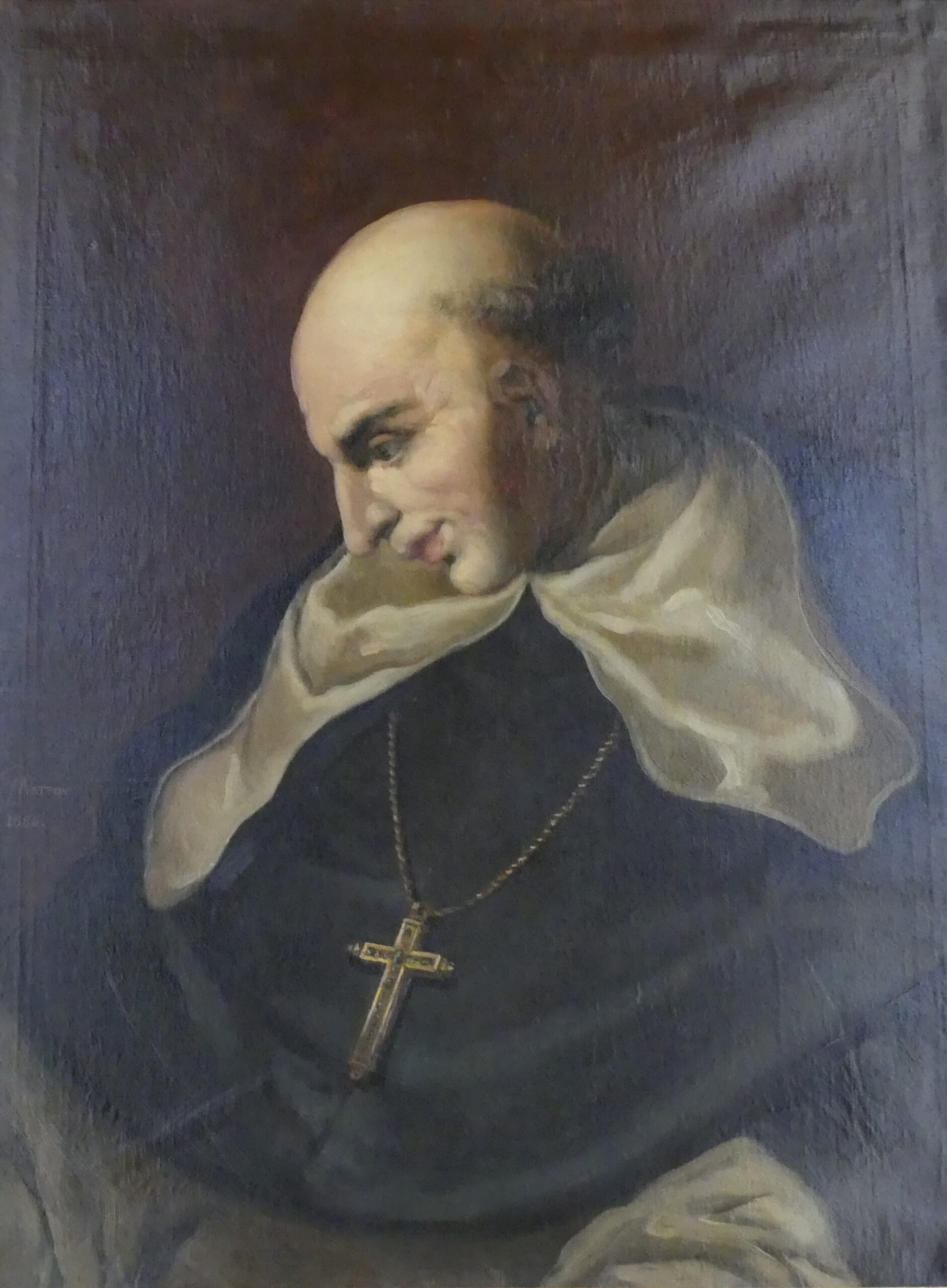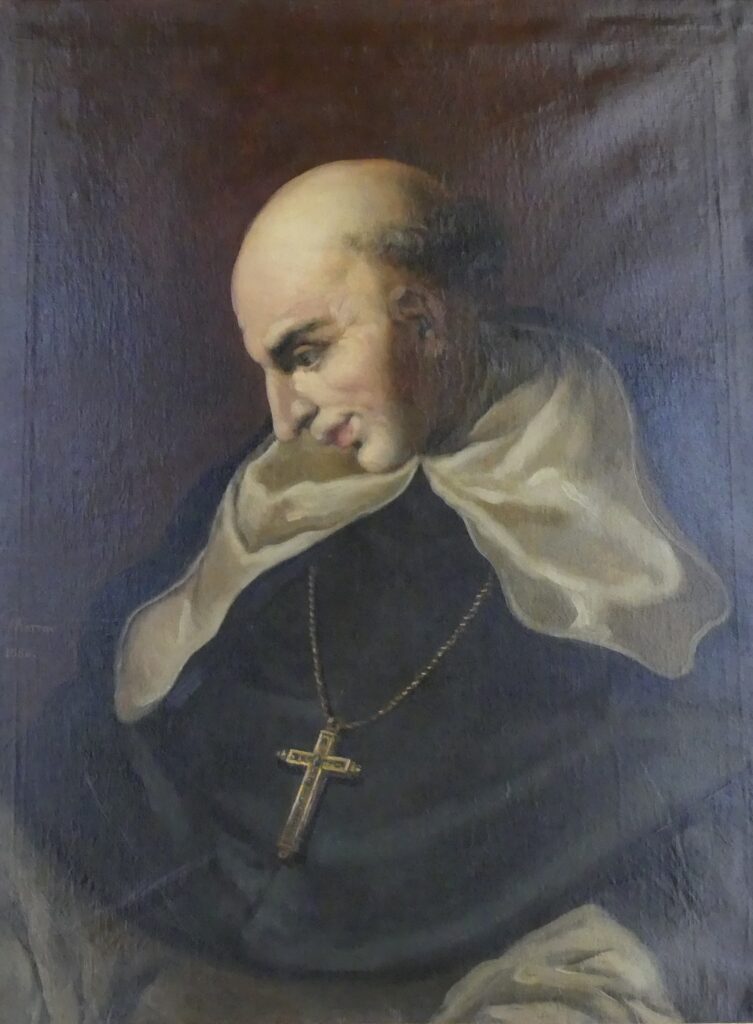Why Does Most Of The Work
Of The Most Important European Primary Source From 1492
Remain Untranslated Into English?
Interviews with Las Casas Scholars
Prof. Larry Clayton
and
Prof. Nigel Griffin
Some of the only eyewitness written accounts of the early Spanish-occupied Americas, including almost all that we know about Columbus in America, are the works of Franciscan priest Bartolome de Las Casas (1484-1566), a sort of Saint Paul who came to the Americas as an enslaver and encomienda holder before realizing how horrible the whole Conquest was and working tirelessly for the rest of his life to improve the lives of natives, while writing about the Americas and collecting the works of Columbus and others so the stories would not be lost. Las Casas’ writings detail the savage brutality of the invading Europeans, the idyll of the natives before the Conquest, and who should be credited what: ‘It surprises me that the admiral’s [Columbus’] son,’ Las Casas wrote, ‘Hernando, who is such a wise man, did not notice how Americo Vespucci usurped the glory of his father, especially since he had documentary proof of it, as I know he does.’
He didn’t pull punches either, writing of the early Conquest, ‘The Christian’s work consisted in keeping the Indians there [in the mines] by force, in beating them and in lacking pity.’
He also wrote about what must arguably be the first European police force in the Americas: ‘[The Spanish] treated the Indians with such rigor and inhumanity that they seemed the very ministers of Hell, driving them day and night with beatings, kicks, lashes and blows and calling them no sweeter name than dogs. The Spaniards then created a special police to hunt them back because mistreatment and intolerable labor led to nothing but death and the Indians, seeing their companions die, began escaping into the woods.’
Among Las Casas’ works is History of the Indies which was published in three volumes – only one of which has ever been translated into English. The last publication of this translation by Andree M. Collar was published by Harper & Row (now Harper Collins) in 1971. The book is widely available in used editions (one can procure a new edition for around $400), but what of the untranslated two volumes – would these stories of early America in what is now Cuba, Haiti, the Dominican Republic, and Caribbean islands ever be available for English readers? Are American English readers even interested in Las Casas’ writings?
The publishers were unhelpful. Harper Collins said they weren’t publishing The History anymore and referred me to Penguin, who only publishes Las Casas’ A Short Account of the Destruction of the Indies, which is a must read for America studies, but is not History of the Indies.
Since the publishers seemed uninterested and uninteresting, I reached out to Larry Clayton, Professor Emeritus of History at the University of Alabama, and author of Bartolome de las Casas: A Biography (2012) and other works.
Professor Clayton responded eloquently:
You’ve got it all right on the three volume Historia de las Indias by Las Casas. Collar’s translation is the only one I know of, and it was only partial.
There are lots of editions/translations of the Brief History of the Destruction of the Indies. It was very popular with Spain’s Protestant competitors for empire! The Brief History is indeed different from the History of the Indies, but, on the other hand, it was largely drawn and/or extracted from the larger work.
I agree. We need a good, annotated English translation of the History of the Indies. Along with one or two other accounts, it is among the basic resources for the early history of the Conquest/Encounter.
Professor Clayton urged that Las Casas ‘continues to interest readers – professional and otherwise’ and mentioned several major projects about Las Casas that he is currently involved with.
Another scholar I sought out was Nigel Griffin, retired from the Faculty of Medieval and Modern Languages at the University of Oxford and writer of many works, who agreed that ‘It has never been translated. Considering it is the base text for the early history of European presence in the Americas, that is extraordinary’ – and who was far ahead of me. Not only had Griffin himself translated a third of History of the Indies for UCLA’s Repertorium Columbianum series, but he had delivered a keynote lecture at a 2009 conference in which he had addressed the subject directly – not only the lack of an English translation, but the Why.
From his keynote lecture: ‘Oddly, considering it is by common consent the most complete and most important early account of the Indies and of Columbus’s life, and was written by a man who knew Columbus and was an eye-witness to many of the events he recounts, it [History of the Indies] has still not been translated into other major world languages, even into English. This is, I think, a clear indictment of academic systems on both sides of the pond which today set more store by shallow theoretical posturing and unscholarly debate founded on sand than they do by the unsexy bedrock apprenticeship that comes from handling, editing, translating, and making available crucial primary sources.’
Or, in short, Griffin explains: ‘Not sexy enough.’
But, I protested, wouldn’t a publisher want to publish the volumes because they would sell, given the importance of Las Casas to the Americas and the general public interest in the topic and him? And a publisher could fund the translator/translation. Am I missing something?
‘Yes,’ Griffin responded, ‘I think you are missing something. Three things in fact.
‘First, current priorities in the university sector, which encourage young academics to publish regularly. These mean that long-term projects, however commendable from the point of view of scholarly usefulness, are unlikely to secure the author tenure or promotion. It took me two years to establish a critical text of the parts of Las Casas’s History that I had selected in consultation with the editor of the Repertorium, and then a further 18 months to translate them. To me that was immaterial, as I already had job security.
Second, those same senior academics who lay down the rules for promotion etc. have tended and still tend to favour interpretation and theoretical posturing over ‘old-fashioned’ scholarship and the hard-earned skills of deciphering manuscript texts, editing them, and presenting them free of messy theoretical input.
And third … the necessary skills are in short supply. You need a training in 15th and 16th-c. Spanish and Portuguese literature, history, and philology; a good grasp of classical rhetoric; a knowledge of Columbus’s own eclectic reading habits; some sense of theology; and, of course, experience in reading LC’s manuscripts. A clear indication of how short the supply of such basic skills is can be gleaned from the fact that the most exhaustive recent edition of LC is riddled with transcription errors even though the editor is himself Spanish.’
Las Casas wrote in History of the Indies, ‘The whole world knows and admits this lamentable annihilation of so many people; even those who never set foot in the Indies know it, for it is notoriously and justly famous, but the truth of what actually happened was greater than any account one can make of it.’
He admits the limitations of his account and of all accounts while still striving to make an account of it anyway. The whole world should know of the lamentable annihilation of so many people. Of course the publishers and universities and professors have not gotten together to conspire to keep these un-translated texts hidden – they didn’t have to, and is that notorious or justly famous?
Works Cited
Casas, Bartolome de Las. History of the Indies. Translated by Andree M. Collar, Harper & Row, 1971.
Casas, Bartolome de Las. History of the Indies. Translated by Nigel Griffin, Penguin Books, 1992.
Casas, Bartolome de Las. Las Casas on Columbus: background and the second and fourth voyages. Translated by Nigel Griffin, Brepolis, Repertorium Columbianum, vol. 7, 1999.
Clayton, Lawrence A. Bartolome de las Casas: a biography. Cambridge University Press, 2012.
published in Handout issue 7

